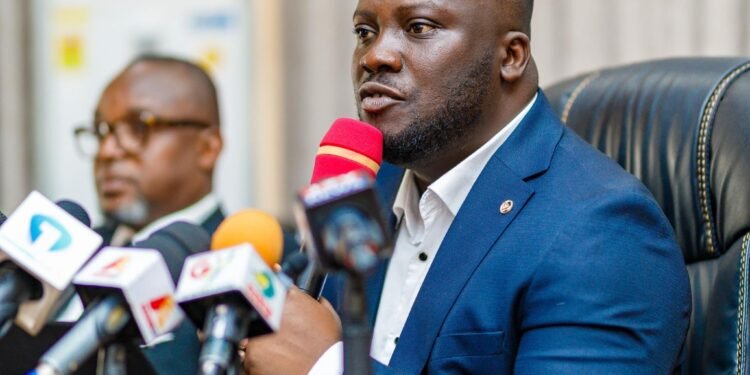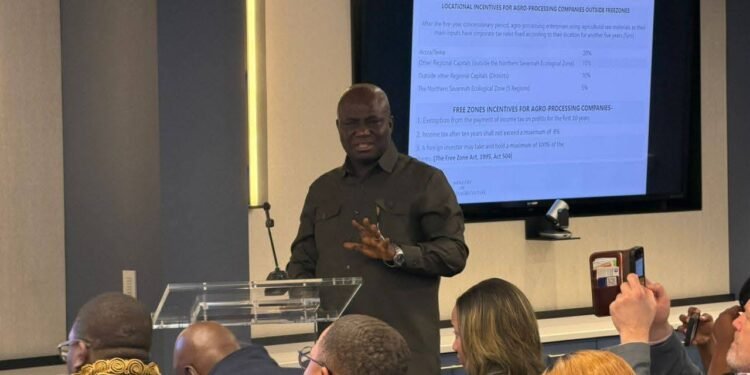The International Monetary Fund (IMF) has praised the Bank of Ghana (BoG) for maintaining a firm monetary policy stance, describing it as crucial in the ongoing fight to tame inflation and restore macroeconomic stability.
This endorsement came after the IMF Executive Board concluded the Fourth Review under Ghana’s Extended Credit Facility (ECF) programme, a milestone that affirms the country’s economic reforms are on the right track.
In its assessment, the IMF commended the BoG’s continued resolve to uphold an appropriately tight monetary policy stance. This, the Fund noted, is necessary to bring inflation back within target levels. Ghana has experienced elevated inflation over the past few years, driven by global supply shocks, fiscal slippages, and currency depreciation. However, with recent policy actions, inflationary pressures have started to ease, and the central bank’s commitment to staying the course is seen as a critical part of the recovery strategy.
“The Bank of Ghana should maintain an appropriately tight monetary stance until inflation returns to its target,” the IMF stated. The Fund further advised that the central bank reduce its interventions in the foreign exchange market and adopt a formal internal FX intervention policy framework. These actions are intended to promote greater exchange rate flexibility, rebuild foreign reserves, and support broader economic resilience.
Fiscal Discipline and Structural Reform
The BoG’s prudent approach complements wider economic reforms led by the government under President John Mahama. The IMF praised Ghana for taking “bold corrective actions” to keep the ECF programme on track. The passage of a 2025 budget aligned with the programme’s goals, along with the enactment of an enhanced fiscal responsibility framework, signal a renewed national commitment to fiscal discipline.
According to the IMF, these actions are helping Ghana move toward economic stabilisation, rebuild resilience, and set the foundation for higher and more inclusive growth. The Fund noted that the government remains strongly committed to addressing the structural weaknesses that contributed to earlier economic slippages. These include improving tax administration, enhancing expenditure controls, and streamlining non-priority spending.
One major area requiring urgent attention is the energy sector, which continues to pose a significant fiscal risk. The IMF stressed that addressing challenges within the energy sector and tackling associated arrears are critical to preventing future budgetary imbalances.
In addition, the efficiency of State-Owned Enterprises (SOEs) must be improved. The IMF emphasized that strengthening the governance and operational performance of SOEs is vital to support durable fiscal adjustment and reduce long-term liabilities on the state.
Financial Sector Stability on the Radar
Beyond fiscal and monetary policy, the IMF placed strong emphasis on the need for further efforts to strengthen Ghana’s financial sector. The BoG has already taken steps to address the issue of undercapitalised banks. However, the Fund insists that more comprehensive action is needed.
Specifically, the IMF urged Ghana to fully implement the plan to restructure the National Investment Bank (NIB), finalise a robust reform strategy to ensure the viability of state-owned banks, and prepare contingency plans for weak banks unable to recapitalize. These steps, if followed, will help to bolster the financial sector’s stability and safeguard public confidence in the banking system.
The Fund also called on the BoG to enhance crisis management and resolution frameworks and reinforce financial safety nets. “Addressing legacy issues at specialised deposit-taking institutions is also important,” the Fund added, alluding to lingering vulnerabilities in smaller financial entities.
The IMF’s endorsement of Ghana’s recent efforts is both a validation and a challenge. While acknowledging progress made, the Fund is urging continued vigilance and steadfastness in reform implementation. From monetary policy and fiscal discipline to SOE reform and banking sector clean-up, the country must remain focused on its long-term goals.
READ ALSO: Unchecked Raw Cashew Exports Threaten Jobs and Undermine 24-Hour Economy Policy – ACPG Raises Alarm























